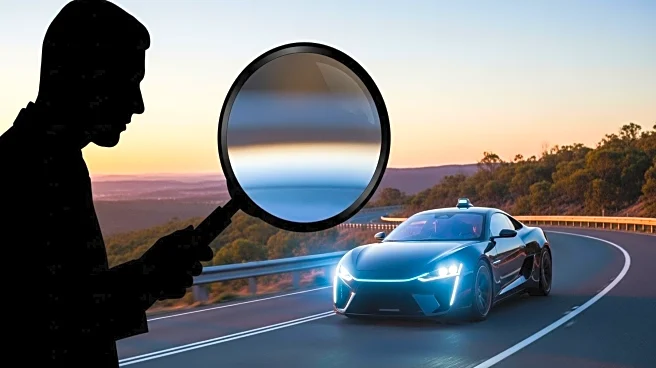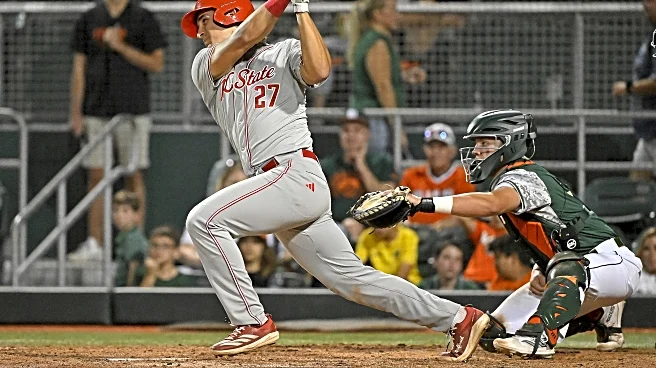What's Happening?
Tesla's Full Self-Driving (FSD) technology, which claims to allow vehicles to operate without driver input, is facing scrutiny in Australia. The technology, classified as a 'Level 2' semi-autonomous system, requires the driver to remain in control, creating a legal loophole that places responsibility on the human driver. Recent tests in Melbourne were conducted without the necessary permits, according to the Victorian Government, which has not approved any fully autonomous vehicle testing in the city's CBD. In contrast, Queensland's government stated no permit was required for Tesla's media launch, although local laws mandate drivers keep at least one hand on the steering wheel. Tesla has yet to make FSD publicly available in Australia, despite the Model Y and Model 3 being equipped with the necessary hardware. The technology has been available for order at $10,100, with early buyers prioritized for activation upon release.
Why It's Important?
The scrutiny of Tesla's Full Self-Driving technology in Australia highlights ongoing global concerns about the safety and regulatory compliance of autonomous vehicles. The National Highway Traffic Safety Administration in the U.S. previously opened a probe into 2.4 million Tesla vehicles equipped with FSD following multiple crashes, including a fatal incident. The situation underscores the challenges faced by automakers in balancing innovation with safety and regulatory requirements. The outcome of these investigations could influence public policy and consumer trust in autonomous driving technologies, impacting Tesla's market strategy and the broader automotive industry's approach to self-driving vehicles.
What's Next?
Tesla's engagement with Australian authorities will likely continue as it seeks approval for its Full Self-Driving technology. The company may need to address regulatory concerns and demonstrate the safety of its system to gain public and governmental trust. The broader implications for Tesla include potential adjustments to its rollout strategy in other regions, depending on the outcomes of these discussions. Additionally, the ongoing investigation by U.S. regulators could lead to further scrutiny and possible changes in how autonomous driving technologies are tested and deployed globally.
Beyond the Headlines
The controversy surrounding Tesla's Full Self-Driving technology raises ethical questions about the responsibility of automakers in ensuring the safety of autonomous systems. It also highlights the need for clear regulatory frameworks to govern the testing and deployment of such technologies. As autonomous vehicles become more prevalent, societal attitudes towards machine-driven transportation may shift, prompting discussions on the balance between technological advancement and human oversight.











